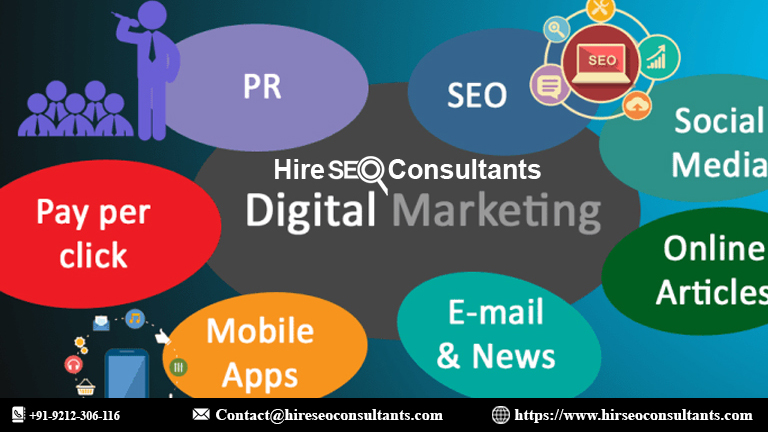The Ultimate Guide to Medical Billing Services

Medical billing services play an integral role in the healthcare industry by streamlining the revenue cycle management process. These services help healthcare providers focus on delivering quality patient care while ensuring that their financial operations are efficient and compliant with regulatory requirements. Medical billing services involve submitting, following up on, and appealing claims with insurance companies to ensure timely payment for services rendered by healthcare providers.
Importance of Medical Billing Services
Efficient medical billing services are essential for healthcare providers to maintain financial stability and improve cash flow. By outsourcing medical billing, healthcare facilities can eliminate errors, reduce denials, and save time on administrative tasks. This allows them to allocate more resources to patient care and organizational growth. Additionally, medical billing services help providers stay up-to-date with changing regulations and ensure compliance with industry standards.
Core Functions of Medical Billing Services
-
Patient Data Management: Medical billing services begin with accurate patient data entry, including demographic details, medical history, and insurance information. This data is critical for generating accurate claims.
-
Insurance Verification: Verifying patient insurance coverage and benefits is a crucial step to avoid claim denials. Medical billing services ensure that patient eligibility is confirmed before services are rendered.
-
Coding and Charge Entry: Medical billing services include precise coding of medical procedures and diagnoses using standardized codes such as CPT, ICD-10, and HCPCS. Accurate coding minimizes claim rejections and ensures proper reimbursement.
-
Claims Submission: After coding, claims are submitted to insurance companies electronically or manually. Medical billing services ensure that all required information is included to avoid delays in processing.
-
Payment Posting: Payments received from insurance companies and patients are recorded accurately. This step helps healthcare providers track their financial performance.
-
Denial Management: In cases of claim denials, medical billing services review the reasons for denial, make necessary corrections, and resubmit the claims to maximize reimbursement.
-
Reporting and Analytics: Medical billing services provide detailed reports and analytics to help healthcare providers understand their financial performance and identify areas for improvement.
Benefits of Medical Billing Services
-
Improved Revenue Cycle Management: Medical billing services optimize the revenue cycle by reducing errors, ensuring timely submissions, and increasing reimbursement rates.
-
Cost Savings: Outsourcing medical billing eliminates the need for in-house billing staff, software, and infrastructure, resulting in significant cost savings.
-
Error Reduction: Professional medical billing services have experienced staff who are well-versed in coding and billing regulations, reducing the likelihood of errors.
-
Focus on Patient Care: By outsourcing billing tasks, healthcare providers can concentrate on delivering high-quality patient care without worrying about administrative burdens.
-
Regulatory Compliance: Medical billing services ensure compliance with ever-changing healthcare regulations, reducing the risk of penalties and audits.
Types of Medical Billing Services
-
Full-Service Billing: This type of service handles all aspects of the billing process, from patient registration to payment posting and reporting. It is ideal for large healthcare organizations that require end-to-end solutions.
-
Specialty Billing: Specialty medical billing services focus on specific medical fields such as cardiology, dermatology, or radiology. These services are tailored to meet the unique needs of specialized practices.
-
Accounts Receivable Management: This service focuses on managing unpaid claims and reducing outstanding balances to improve cash flow.
-
Coding Services: Medical coding services specialize in accurately translating medical procedures and diagnoses into standardized codes for billing purposes.
Choosing the Right Medical Billing Service
When selecting a medical billing service, healthcare providers should consider the following factors:
-
Experience and Expertise: Choose a provider with a proven track record and expertise in handling medical billing for your specialty.
-
Technology and Software: Ensure the billing service uses advanced technology and software that integrates seamlessly with your existing systems.
-
Compliance and Security: Verify that the service adheres to HIPAA regulations and employs robust security measures to protect patient data.
-
Customization: Look for a service that offers customized solutions to meet your specific needs and preferences.
-
Customer Support: Reliable customer support is essential for resolving issues and answering queries promptly.
Challenges in Medical Billing Services
-
Constant Regulatory Changes: Keeping up with frequent changes in healthcare regulations can be challenging for billing services.
-
Coding Errors: Incorrect or incomplete coding can lead to claim denials and revenue loss.
-
Denials and Appeals: Managing claim denials and submitting appeals require time and expertise.
-
Patient Communication: Educating patients about their financial responsibilities and resolving billing disputes can be time-consuming.
Trends in Medical Billing Services
-
Automation and AI: The use of automation and artificial intelligence in medical billing services is increasing, leading to faster and more accurate processing of claims.
-
Telehealth Billing: With the rise of telehealth services, medical billing providers are adapting to new billing codes and regulations.
-
Value-Based Care: Medical billing services are shifting towards value-based care models, focusing on patient outcomes rather than service volume.
-
Outsourcing Growth: More healthcare providers are outsourcing medical billing to specialized companies to reduce costs and improve efficiency.
Conclusion
Medical billing services are an indispensable part of the healthcare industry, ensuring that providers are paid promptly and accurately for their services. By outsourcing these tasks, healthcare organizations can improve their revenue cycle, reduce administrative burdens, and focus on delivering quality care. As technology advances and regulations evolve, medical billing services will continue to adapt, providing innovative solutions to meet the needs of the healthcare industry.
What's Your Reaction?



















